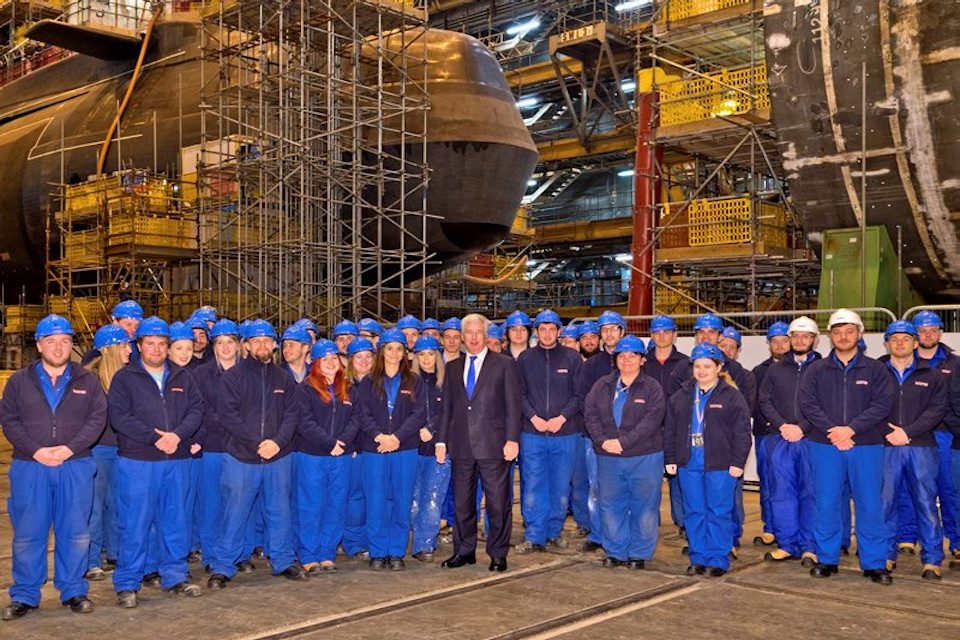Why do we need an initiative for the sustainable development of the blue economy in the western Mediterranean?
The western Mediterranean Sea has enormous wealth in terms of natural resources, cultural assets and diversity of people and places. The various sectors of the maritime economy have vast potential for development. But despite the major assets, the region faces a number of challenges which give rise to geopolitical instability: a prolonged economic and financial crisis with high youth unemployment in several countries, growing coastal urbanisation, the overexploitation of fish stocks, marine pollution and last but not least the refugee crisis. In addition climate change greatly affects the region and the rise in sea level is a major threat to coastal ecosystems and economies. Other factors such as population growth and ageing, migration and deepening globalisation are bound to magnify these pressures.
How has the initiative for western Mediterranean come about?
This Initiative for the Western Mediterranean follows up on Ministerial Declaration on the Blue Economy endorsed by the Union for Mediterranean on 17 November 2015, which invited the participating countries to explore the added value and the feasibility of appropriate maritime strategies at sub-regional level, and build on the experience of the 5+5 Dialogue. In October 2016, the Foreign Affairs Ministers of Algeria, France, Italy, Libya, Malta, Mauritania, Morocco, Portugal, Spain and Tunisia encouraged further work on an initiative for the sustainable development of the blue economy, together with the Union for the Mediterranean (UfM) Secretariat.
The Initiative results from close cooperation between the European Commission and the national governments, the UfM Secretariat, the region’s stakeholders and regional organisations such as General Fisheries Commission for the Mediterranean, the UN Environmental Programme, the Mediterranean Action Plan and the Conference of Peripheral and Maritime Regions. The process started in February 2016 and culminated a year later with a Stakeholder Conference in Barcelona.
Which countries are involved?
The geographical scope of this strategy is based on the western Mediterranean sub-basin and concerns ten countries: five EU Member States (France, Italy Portugal, Spain and Malta) and five non-EU countries (Algeria, Libya, Mauritania, Morocco and Tunisia). As it concerns both EU and partner countries, it will have to be politically endorsed both in the EU and in the Union for the Mediterranean.
Will it be open to other countries?
The scope of action and the potential benefits of this initiative could easily extend beyond the western Mediterranean sub-basin. Marine and coastal areas are interconnected systems, so depending on the needs to be addressed, actions may involve partners in the central Mediterranean and north-east Atlantic and will remain open to other partners.
What are the main objectives and goals of the Initiative?
By fostering coordination and cooperation among the ten countries, the Initiative aims to increase safety and security; promote sustainable blue growth and jobs; and preserve ecosystems and biodiversity in the western Mediterranean region. It therefore focusses on three main goals (a safer and more secure maritime space, a smart and resilient blue economy and a better governance of the sea) and proposes a number of priority actions to reach those goals. A Framework for Actionidentifies the gaps that need to be filled and the potential added value of the actions proposed.
How is this initiative linked to EU policies? What areas will it cover?
Rather than creating new legislation, this Initiative aims to achieve the Commission’s priorities (‘A New Boost for Jobs, Growth and Investment’, ‘A Resilient Energy Union with a Forward-Looking Climate Change Policy’, ‘Towards a New Policy on Migration’ and ‘A stronger global actor’) by strengthening cross-border cooperation in the region and fostering compliance with EU law. Special emphasis is laid on better synergy between existing funds and on an integrated approach that ties together different policy strands and strongly interconnects EU policies and initiatives.
The Initiative complements the MedFish4Ever Declaration (Malta, 30 March 2017), which sets out a detailed work programme for the next 10 year to save the Mediterranean fish stocks and protect the region’s ecological and economic wealth.
Who will benefit from the Initiative?
All stakeholders in the region will benefit from the Initiative, including local, regional and national administrations, universities, maritime clusters, training institutions, businesses, SMEs, fishermen, civil society organisations and investors. And last but not least the people living in the region.
How will the Initiative be funded?
The Initiative will be funded through the existing international, EU, national and regional funds and financial instruments. As per a conservative estimate, the funds available for implementing this Initiative amount to at least € 4 billion. In addition the EU is envisaging creating a dedicated assistance mechanism for the western Mediterranean and launching focused calls to promote maritime clusters, Maritime Spatial Planning and cooperation between maritime training institutes and between coastal communities on small scale fisheries in the region amounting to about €10 million.
What are the next steps?
The Commission invites the European Parliament and the Council to endorse this Communication. The Commission also invites the Committee of the Regions and the European Economic and Social Committee to provide opinions on this Initiative.
The participating countries will also need to take ownership and define a governance structure to lead and implement this Initiative. Based on their reports, the Commission will in turn report on the implementation to the Council and the European Parliament by 2022.

